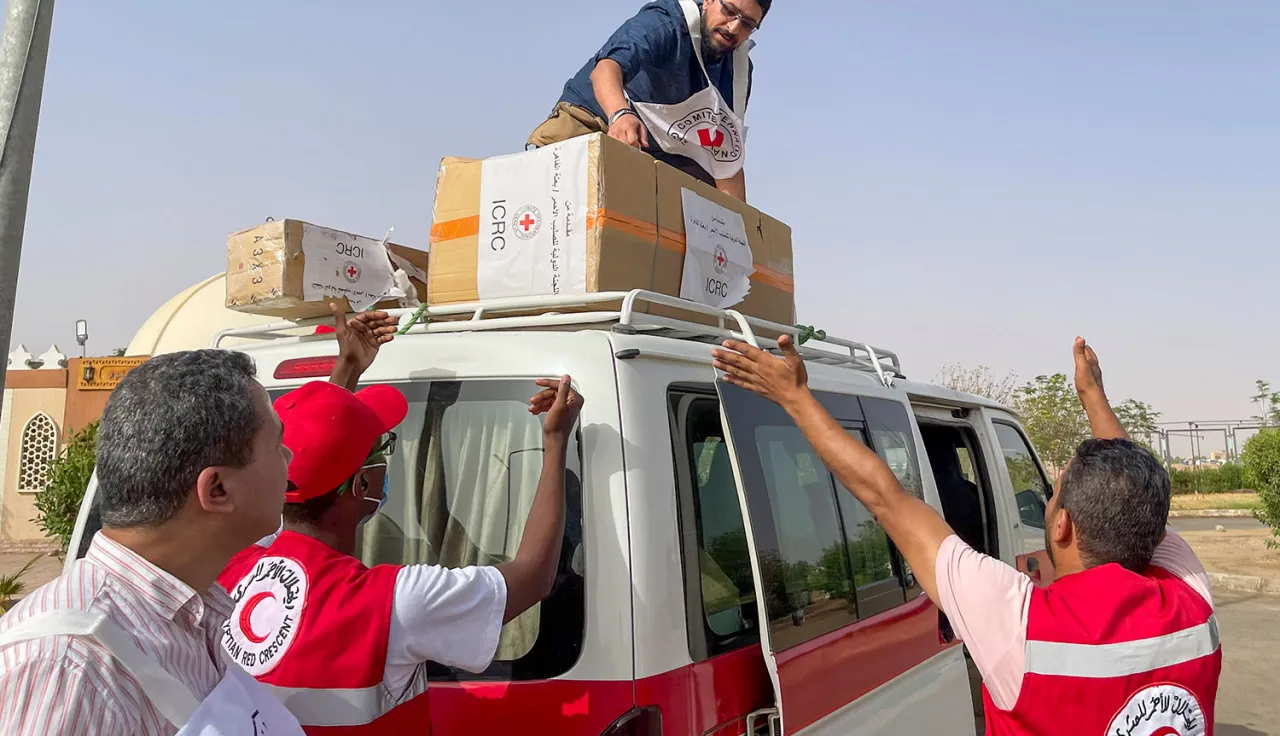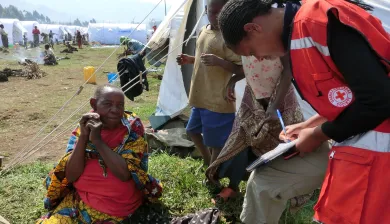How we cooperate with National Societies and the IFRC
The International Red Cross and Red Crescent Movement comprises the ICRC, over 190 National Red Cross and Red Crescent Societies and the IFRC, each operating as a neutral and independent organization and all bound by the same statutes and Fundamental Principles, with the exclusively humanitarian mission of alleviating the suffering of people affected by humanitarian crises.
The ICRC works closely with the other members of the Movement in order to ensure a concerted, coordinated and rapid humanitarian response to armed conflict or violence.
The ICRC also plays an important role in establishing and maintaining dialogue with the parties to a conflict to ensure there is impartial access to all people affected and to provide security and communication support for all members of the Movement present in the country.
The ICRC views cooperation with National Societies and the IFRC as essential, both to fulfilling its own mandate under the Geneva Conventions and to accomplishing the Movement’s humanitarian mission.







